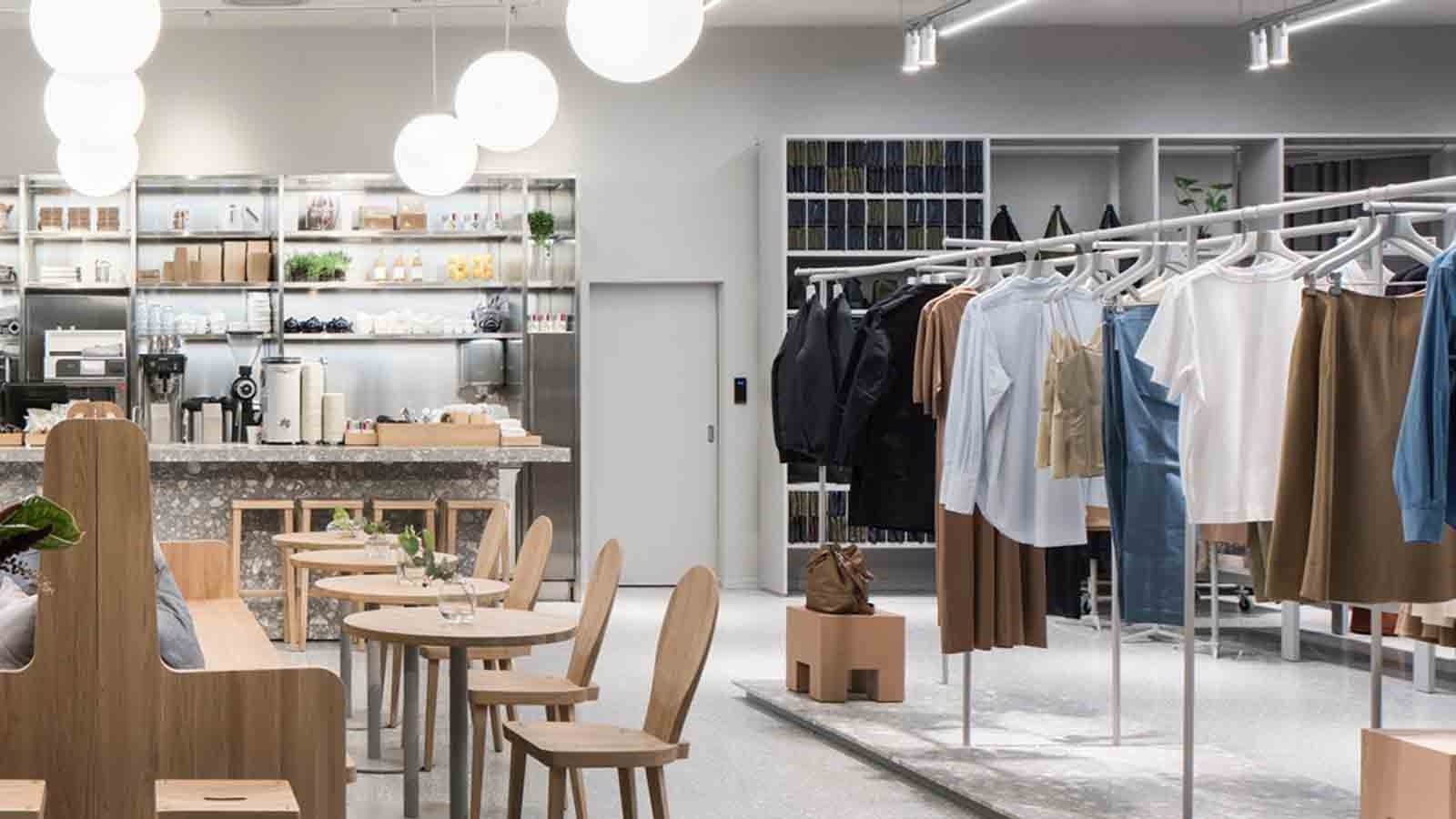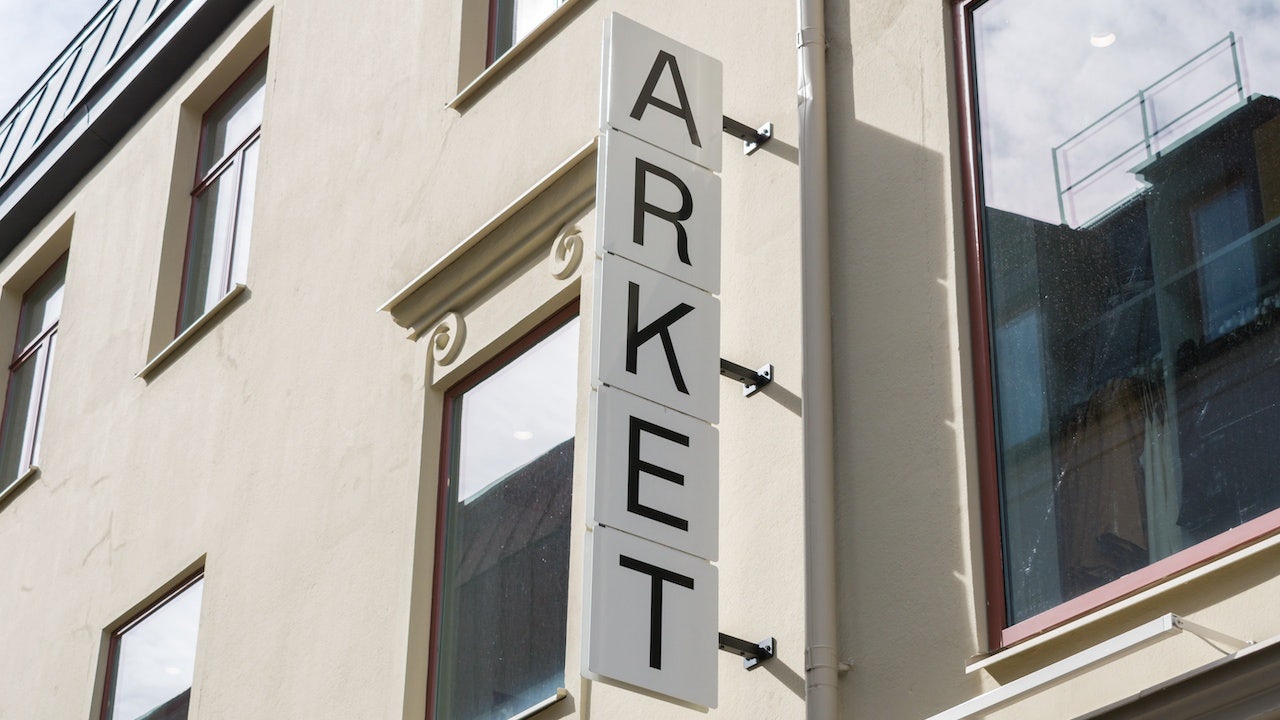Fourteen months after it was roped into a wave of brand cancellations spurred by Xinjiang cotton controversy, global fast-fashion powerhouse H&M is doubling down on minimalism as a conduit to tap the spending power of comfort-minded urban consumers. Following the opening of its first physical China location in Beijing last September, ARKET — H&M's highest-end portfolio brand — recently announced plans to open its second and third China stores in Shanghai and Guanzhou this fall.
Like all ARKET outposts in cities like Beijing, London, and Seoul, the new Shanghai and Guangzhou stores will include the ARKET Café concept, which offers vegetarian and vegan dishes, pastries, and coffee.
As its China expansion effort gets underway, ARKET may find itself outnumbered, if not outmatched, by a growing crop of domestic Chinese brands also offering higher-quality, relatively affordably priced, minimalist apparel. The Hangzhou-based JNBY Group, perhaps most notably, has gunned for the middle- and upper-middle-class urban female professional since its founding in 1994, and launched its ARKET-like minimalist line LESS way back in 2003.

In the first half of fiscal year 2022, LESS recorded a 27 percent jump in revenue as consumers stung by an ongoing pandemic continued to shop for low-key but premium clothing. The brand also recently unveiled a fresh Japandi-tinged visual brand image by Japan’s Irobe Design Institute, and last July named 47-year-old actress Zhou Xun as its official brand ambassador.
Where ARKET could find success where other minimal global brands like Everlane faltered in China is by offering more than "just a store" — namely, through its ARKET Café, which comes to China when interest in specialty coffee and well-designed coffee shops has never been higher. In recent months, the likes of Burberry, Prada, Jaeger-LeCoultre and domestic lifestyle brand THE BEAST have launched pop-up cafés in China or collaborated with domestic third-wave coffee upstarts like Seesaw or Manner.
With China's coffee market projected to grow from around 381.7 billion yuan ($56.8 billion) in 2021 to 1 trillion yuan ($148.8 billion) by 2025, it's perhaps no surprise even very unhip state-owned companies like China Post and Sinopec have opened their own coffee offshoots. The country's coffee boom is even attracting the attention of sportswear brands like domestic Nike competitor Li Ning, which applied to register the trademark "Ning Coffee" earlier this month, presumably in preparation to roll out its own brand of coffee shops across its vast retail network.

